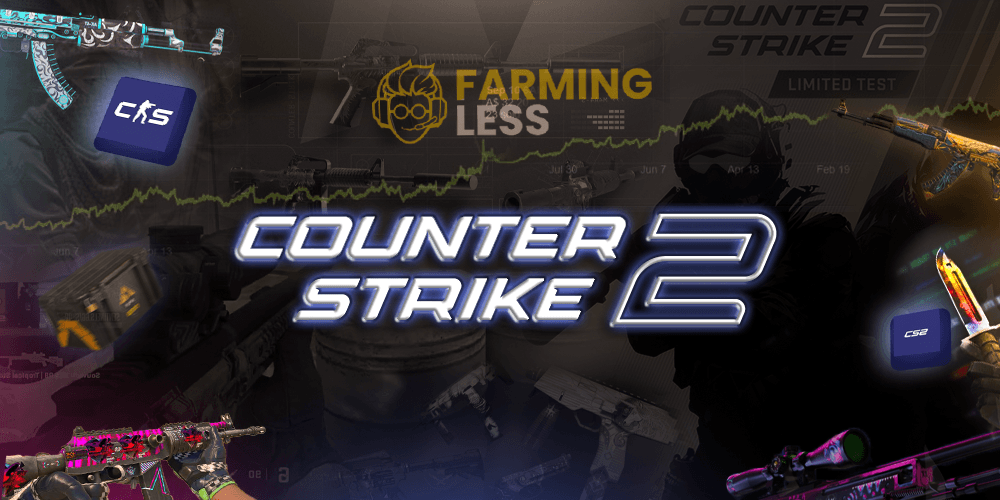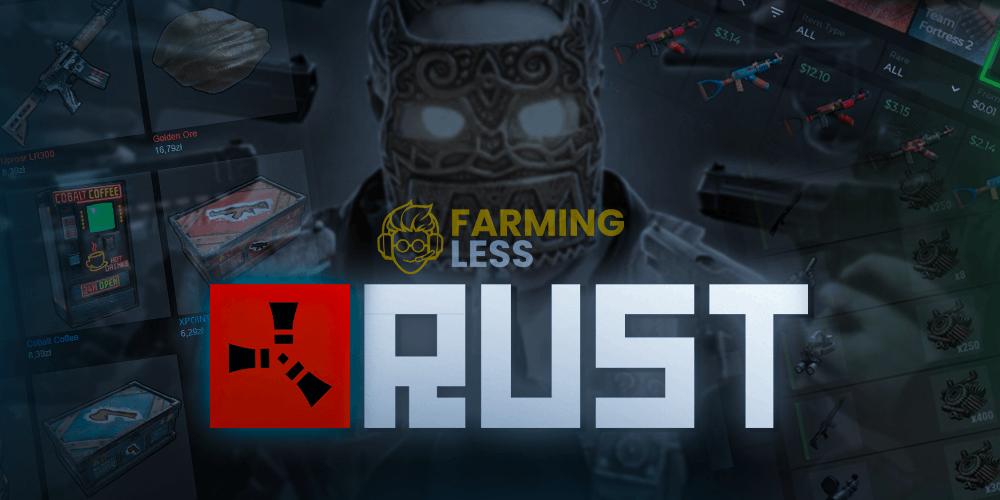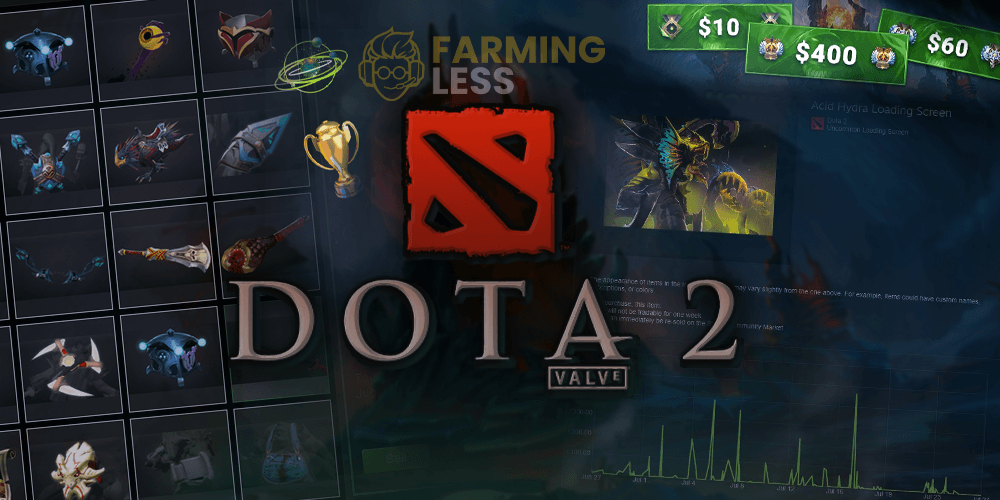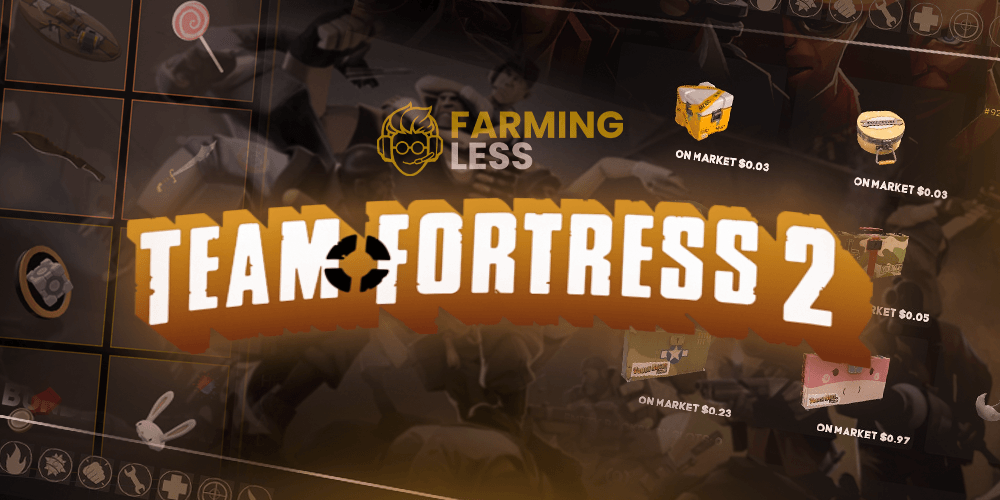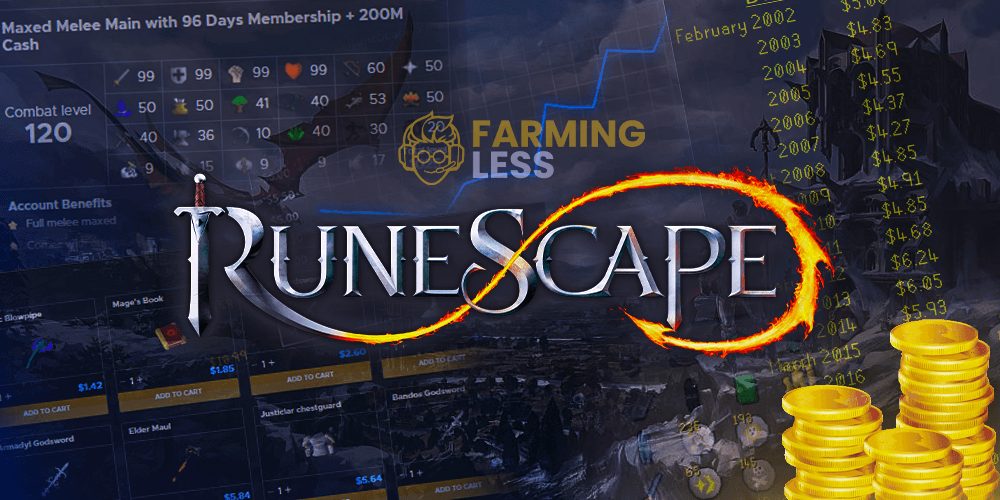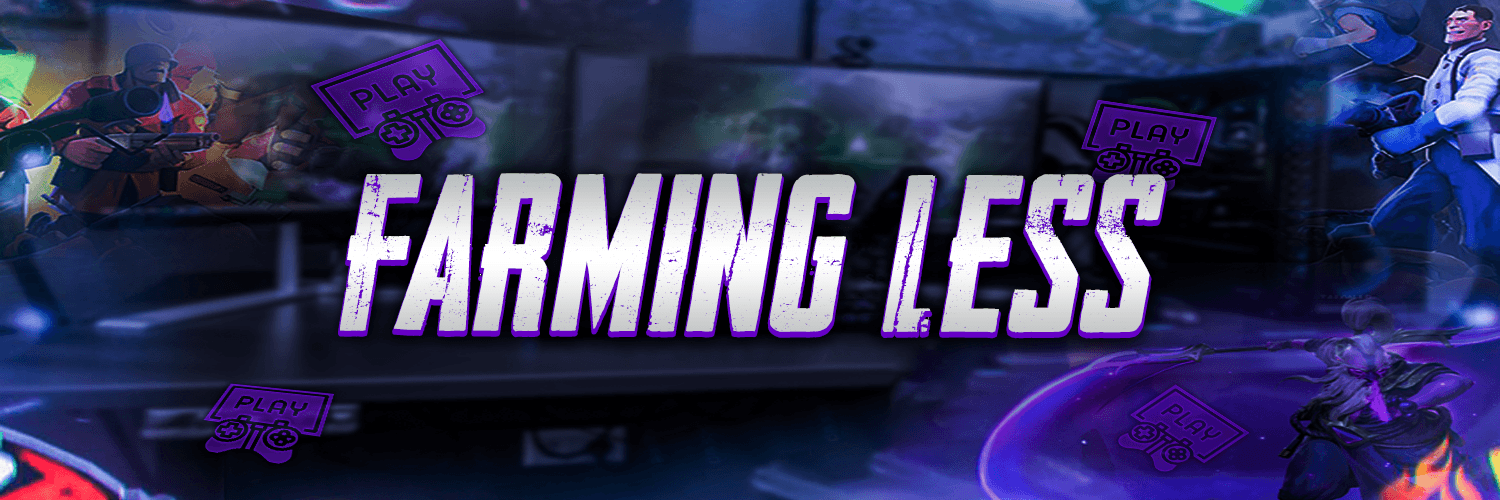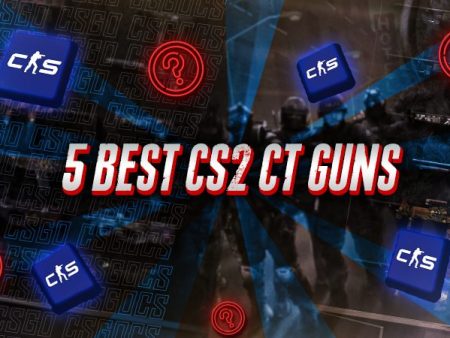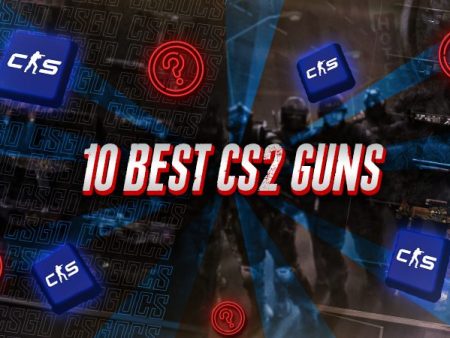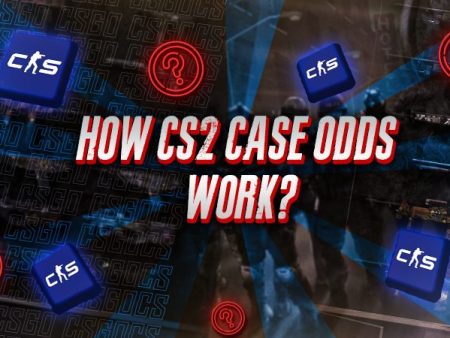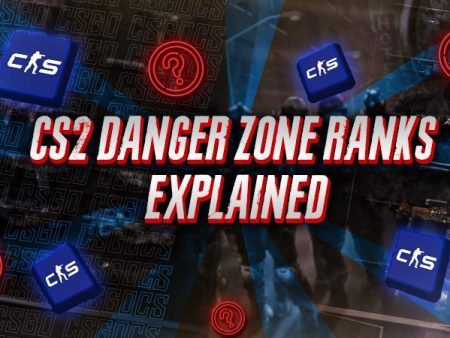Farming Less
Gaming Guides, Tips, News & Reviews
Welcome to Farming Less, your reliable source for gaming guides, news, tips & reviews. Here, you’ll find all you need to master your gaming experience. From detailed guides that help you navigate the most competitive titles, to the latest news and tips that keep you at the forefront of the gaming world, and honest reviews that guide your game choices – we’ve got you covered. At Farming Less, we’re committed to enhancing your gaming journey. Let’s level up together!
Games
Best Reviews
5.0 rating
Join Through Our Link
Receive Additional Fee Discount
Receive Additional Fee Discount
Tested & Verified
Based on our team's anonymous testing, this website demonstrates complete transparency, ensuring a secure and trustworthy experience for users.
5.0 rating
Receive 100% First Deposit Bonus up to $1000
Bonus Code: FARMINGLESS
Bonus Code: FARMINGLESS
Tested & Verified
Terms & Conditions Apply
Based on our team's anonymous testing, this website demonstrates complete transparency, ensuring a secure and trustworthy experience for users.
Terms & Conditions Apply
18+ and new players only.
5.0 rating
Join Through Our Link
Get Up To 5% VIP Discount
Get Up To 5% VIP Discount
Tested & Verified
Based on our team's anonymous testing, this website demonstrates complete transparency, ensuring a secure and trustworthy experience for users.
5.0 rating
Join Through Our Link
Receive Additional Discount
Receive Additional Discount
Tested & Verified
Based on our team's anonymous testing, this website demonstrates complete transparency, ensuring a secure and trustworthy experience for users.
5.0 rating
Receive $1.00 for Free
Bonus Code: FL
Bonus Code: FL
Tested & Verified
Terms & Conditions Apply
Based on our team's anonymous testing, this website demonstrates complete transparency, ensuring a secure and trustworthy experience for users.
Terms & Conditions Apply
18+ and new players only.
5.0 rating
Receive +10% Deposit Bonus
Promotional Code: Farming
Promotional Code: Farming
Tested & Verified
Based on our team's anonymous testing, this website demonstrates complete transparency, ensuring a secure and trustworthy experience for users.
5.0 rating
RSOrder prices:
RS3 gold for $0.044/M
OSRS gold for $0.275/M
RS3 gold for $0.044/M
OSRS gold for $0.275/M
Tested & Verified
Based on our team's anonymous testing, this website demonstrates complete transparency, ensuring a secure and trustworthy experience for users.
5.0 rating
RSGoldFast prices:
RS3 gold for $0.042/M
OSRS gold for $0.265/M
RS3 gold for $0.042/M
OSRS gold for $0.265/M
Tested & Verified
Based on our team's anonymous testing, this website demonstrates complete transparency, ensuring a secure and trustworthy experience for users.
Review Process
1. We check their online reputation
2. We check their prices
3. We try their service
4. How easy everything was
Recent Reviews
4.3 rating
Receive 20 Points for Free
Bonus Code: FARMINGLESS
Bonus Code: FARMINGLESS
Tested & Verified
Terms & Conditions Apply
Based on our team's anonymous testing, this website demonstrates complete transparency, ensuring a secure and trustworthy experience for users.
Terms & Conditions Apply
18+ and new players only.
3.5 rating
Receive a Gift for Free
Bonus Code: FARMINGLESS
Bonus Code: FARMINGLESS
Tested & Verified
Terms & Conditions Apply
Based on our team's anonymous testing, this website demonstrates complete transparency, ensuring a secure and trustworthy experience for users.
Terms & Conditions Apply
18+ and new players only.
3.8 rating
Receive 5% Deposit Bonus
Bonus Code: FARMINGLESS
Bonus Code: FARMINGLESS
Tested & Verified
Terms & Conditions Apply
Based on our team's anonymous testing, this website demonstrates complete transparency, ensuring a secure and trustworthy experience for users.
Terms & Conditions Apply
18+ and new players only.
4.0 rating
Receive $0.50 for Free
Bonus Code: FL
Bonus Code: FL
Tested & Verified
Terms & Conditions Apply
Based on our team's anonymous testing, this website demonstrates complete transparency, ensuring a secure and trustworthy experience for users.
Terms & Conditions Apply
18+ and new players only.
3.0 rating
No Bonus Available
Tested & Verified
Terms & Conditions Apply
Based on our team's anonymous testing, this website demonstrates complete transparency, ensuring a secure and trustworthy experience for users.
Terms & Conditions Apply
18+ and new players only.
3.0 rating
Receive a Gift for Free
Bonus Code: FARMINGLESS
Bonus Code: FARMINGLESS
Tested & Verified
Terms & Conditions Apply
Based on our team's anonymous testing, this website demonstrates complete transparency, ensuring a secure and trustworthy experience for users.
Terms & Conditions Apply
18+ and new players only.
4.0 rating
Receive a Gift for Free
Bonus Code: FARMINGLESS
Bonus Code: FARMINGLESS
Tested & Verified
Terms & Conditions Apply
Based on our team's anonymous testing, this website demonstrates complete transparency, ensuring a secure and trustworthy experience for users.
Terms & Conditions Apply
18+ and new players only.
3.0 rating
Join Through Our Link
Get Up To 5% VIP Discount
Get Up To 5% VIP Discount
Tested & Verified
Based on our team's anonymous testing, this website demonstrates complete transparency, ensuring a secure and trustworthy experience for users.
Promotional Codes
FL
Bonus Code
Use Bonus Code: FL for a Free $1.00
Tested & Verified
Terms & Conditions Apply
Based on our team's anonymous testing, this website demonstrates complete transparency, ensuring a secure and trustworthy experience for users.
Terms & Conditions Apply
18+ and new players only.
Farmingless
Bonus Code
Get 5% deposit bonus and 3 free boxes
Tested & Verified
Terms & Conditions Apply
Based on our team's anonymous testing, this website demonstrates complete transparency, ensuring a secure and trustworthy experience for users.
Terms & Conditions Apply
18+ and new players only.
Farmingless
Bonus Code
100% First Deposit Bonus up to $1000
Tested & Verified
Terms & Conditions Apply
Based on our team's anonymous testing, this website demonstrates complete transparency, ensuring a secure and trustworthy experience for users.
Terms & Conditions Apply
18+ and new players only.
Farmingless
Bonus Code
Get One Free Spin
Tested & Verified
Terms & Conditions Apply
Based on our team's anonymous testing, this website demonstrates complete transparency, ensuring a secure and trustworthy experience for users.
Terms & Conditions Apply
18+ and new players only.
fless
Bonus Code
Get a Case for Free
Tested & Verified
Terms & Conditions Apply
Based on our team's anonymous testing, this website demonstrates complete transparency, ensuring a secure and trustworthy experience for users.
Terms & Conditions Apply
18+ and new players only.
farmingl
Bonus Code
Get $1.00 for Free
Tested & Verified
Terms & Conditions Apply
Based on our team's anonymous testing, this website demonstrates complete transparency, ensuring a secure and trustworthy experience for users.
Terms & Conditions Apply
18+ and new players only.
Farmingless
Bonus Code
Get 3 Cases for Free
Tested & Verified
Terms & Conditions Apply
Based on our team's anonymous testing, this website demonstrates complete transparency, ensuring a secure and trustworthy experience for users.
Terms & Conditions Apply
18+ and new players only.
Farmingless
Bonus Code
Get $500 Deposit Bonus
Tested & Verified
Terms & Conditions Apply
Based on our team's anonymous testing, this website demonstrates complete transparency, ensuring a secure and trustworthy experience for users.
Terms & Conditions Apply
18+ and new players only.
Latest Articles
Counter-Strike 2 is a competitive game packed with thrill and excitement, offering players a high-stakes, fast-paced gaming ...
February 13, 2024
0 90
CS2 is a tactical game where strategy trumps aim. One of the main strategic decisions CS2 players ...
February 9, 2024
0 101
CS2 is a first-person shooter, which is why it revolves a lot around weapons. You have sniper ...
February 5, 2024
0 114
Are you tired of looking at your boring old default weapon models? You need a flashy CS2 ...
February 1, 2024
0 109
You probably know how CS2 cases work. You get a case, you buy a key, then you ...
January 24, 2024
0 114
Since the launch of CS2, the Danger Zone game mode hasn’t been available in the game. However, ...
January 20, 2024
0 117
